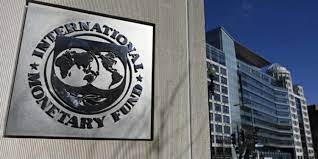
The International Monetary Fund (IMF) has advised the Federal Government of Nigeria to consider abolishing fuel and electricity subsidies, citing their significant financial burden and lack of effective targeting towards the most vulnerable segments of society.
According to the IMF, the continuation of these subsidies poses a considerable cost to the government and does not effectively benefit those in need. While the IMF’s recommendation underscores the potential fiscal benefits of eliminating these subsidies, it also raises concerns about the potential impact on consumer costs.
While the IMF’s statement does not explicitly state the repercussions, it is widely understood that the removal of subsidies would likely lead to an increase in gasoline and energy prices.
Currently, subsidized rates for fuel and electricity in Nigeria are significantly lower than their actual market value, leading to distortions in pricing and allocation of resources.
Should the government heed the IMF’s advice and phase out these subsidies, it is expected that consumer costs would rise to reflect the true market worth of fuel and electricity.
This adjustment would align prices more accurately with economic realities, ensuring a fairer distribution of resources and promoting efficiency in the energy sector.
However, the potential spike in gasoline and energy costs raises concerns about its impact on the general populace, particularly low-income households who rely heavily on subsidized fuel and electricity.
The government would need to implement measures to mitigate the adverse effects of subsidy removal, such as targeted assistance programs or income support initiatives, to ensure that vulnerable groups are not unduly burdened by the price adjustments.
Ultimately, the IMF’s recommendation highlights the need for the Nigerian government to carefully weigh the costs and benefits of subsidy reform, considering both the fiscal implications and the welfare of its citizens.





